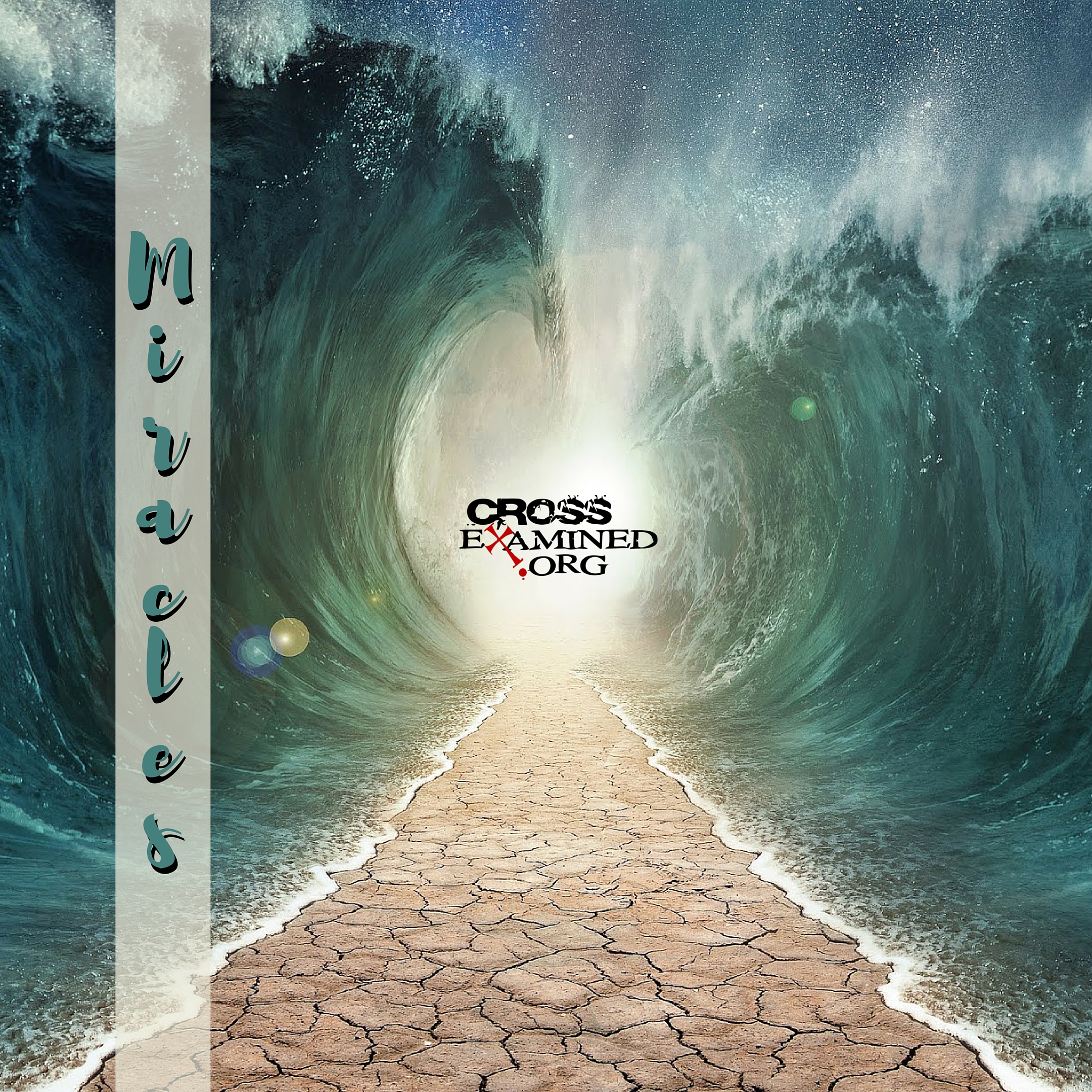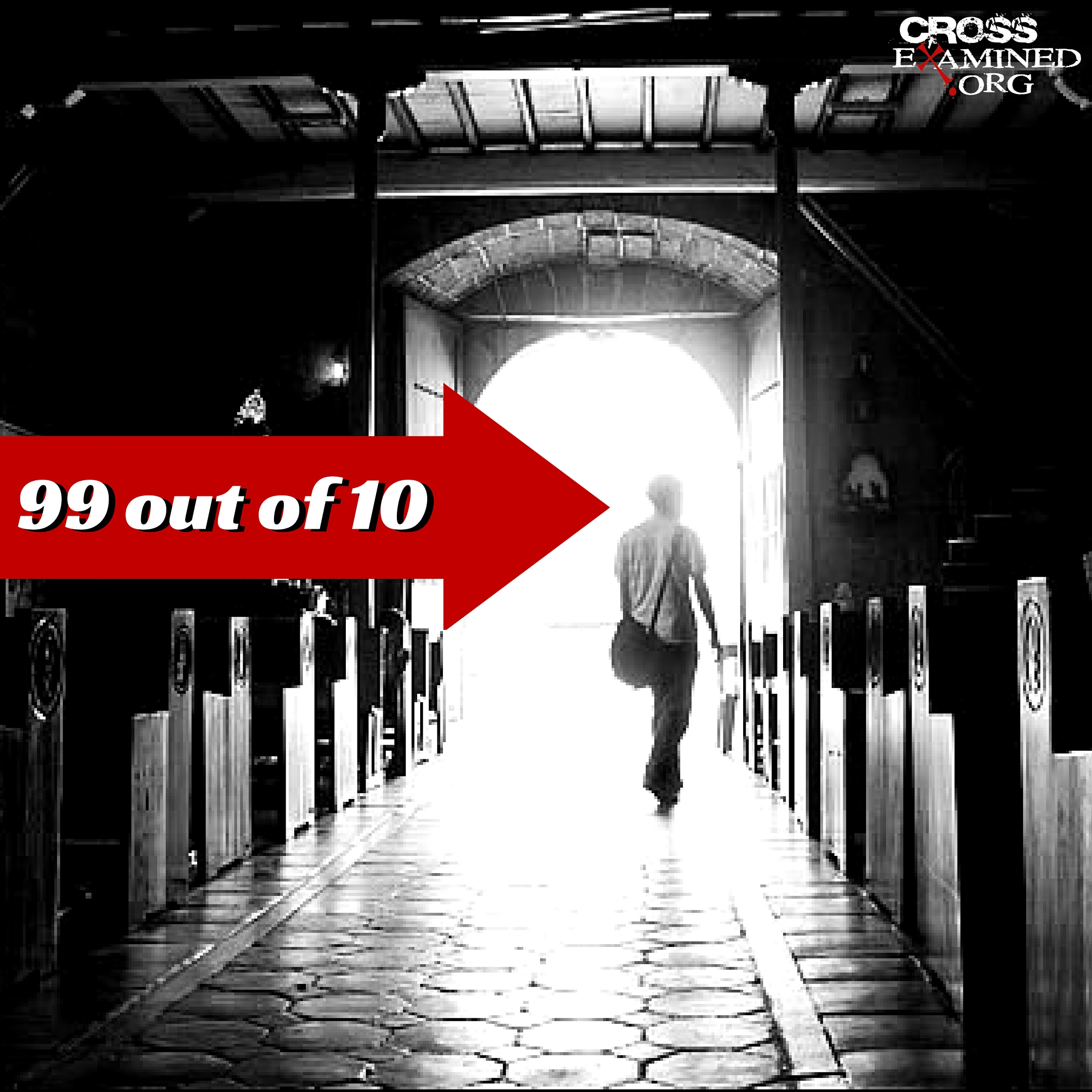By Natasha Crain
I received the following blog comment this week, packed with statements that your kids are likely to hear (and possibly come to believe) about the nature of truth. I wanted to reply to the commenter right here in a blog post because I feel there is so much that is important for everyone to understand about what he is saying.
I’m going to include the full comment below so you can read it in its unbroken entirety, then I’ll break it down part-by-part. If you have older kids, I encourage you to read them this letter and use it as a discussion starter.
For context, this person is responding to an atheist who had commented on a post previously and is encouraging him to stay strong in the midst of Christian claims.
You are really brave defending your stance against a bunch of evangelical Christians banging on you. I myself am not an atheist. If I have to put a label on myself, I would choose agnostic theist. I believe in God or a higher power, but I don’t have an absolute certainty of his or her nature.
My belief is rational to [a] certain extent. The rest is on faith. However, unlike Christians, my spiritual path is highly personal and subjective. I will never say that “you’d better believe what I believe or you will suffer eternal consequences”. Christians, whichever denominations, like to intimidate me which [sic] this “Jesus is the high way” tactic even though I never initiate any religious conversation with them. However, I have survived as a gay, Vietnamese, and non-Abrahamic-faith person, and my life is pretty good so far. I know you may not like to hear this. I feel connected to God with contemplation, prayer, and compassion practice. When I have a child, I will not raise him or her as an atheist or a believer. I will do my best to raise him as a person who has a higher sense of empathy and compassion. If he chooses to be a Christian, Buddhist, Wiccan, Pagan, etc., I will support his decision. I believe that God is like an ocean, and different spiritual paths are like rivers. I am not the one who decides which river is the best to reach the ocean…
Keep your stance and keep searching truth…your truth. Not mine and definitely not these Christians’.
My Response: An Open Letter to a Relativist
Dear Minh,
Thank you for being willing to honestly share your spiritual journey in the comments section of my blog. It’s clear that spirituality is an important topic for you, as it is for me. With that in mind, I’d like to respond to several of the points you make.
You said: I myself am not an atheist. If I have to put a label on myself, I would choose agnostic theist. I believe in God or a higher power, but I don’t have an absolute certainty of his or her nature.
From what you’re saying here, it sounds like you are “agnostic” about what kind of God or higher power exists because you haven’t found anything pointing to that Being’s nature with absolute certainty. However, it’s important that we’re honest with ourselves about this desire for absolute certainty. There’s pretty much nothing in life we know with “absolute certainty.” For example, do you know with absolute certainty that you are a real person and that everything you experience is not just an illusion? No, but you have good reason to believe you really exist and you live accordingly. We claim to know things all the time that we can’t be absolutely certain about. When the preponderance of evidence points toward something being true, we go ahead and say we know it.
The question I would leave you to consider, therefore, is this: If you discovered that a preponderance of evidence pointed to a specific religion being the one true revelation of God to humans, would you accept it as truth? Or do you require a level of certainty that you don’t require of anything else in your life?
If you require a unique level of certainty in spiritual matters, then I would suggest perhaps you don’t want to find truth. If you are open to considering the weight of the evidence for the possible objective truth of a specific religion, then I would invite you to begin that investigation in earnest. If you would like to learn about the evidence for Christianity specifically, I will recommend a great starting book at the end of this letter.
You said: My belief is rational to a certain extent. The rest is on faith. However, unlike Christians, my spiritual path is highly personal and subjective.
It sounds as though you are suggesting that a highly personal and subjective spiritual path is a better way than an objective one, such as in Christianity. However, it’s important to realize (if that’s indeed what you are implying) that by claiming this, YOU are making an objective statement–that a highly personal and subjective spiritual path is best for everyone! That’s a contradiction.
You said: I will never say that “you’d better believe what I believe or you will suffer eternal consequences”.
If you’re an agnostic theist, then you presumably don’t believe there are eternal consequences for your beliefs, so of course, you will never say that. But what you are really saying here is that it’s wrong (and probably arrogant) for Christians to suggest to others that they have objective knowledge that beliefs have eternal consequences. Here’s the problem: What if Christianity is true? What if there are eternal consequences for what you believe? Would it be more loving for Christians to tell others about that, or to stay silent in the fear that the truth might bother you? Whether you believe Christianity is true or not, it’s not logical to suggest it’s a bad thing for Christians to warn other people about what they believe to be eternal consequences. When a person truly believes something horrible will happen to another person unless they warn them about it (think of someone about to get hit by a bus), the logical and loving action is to warn them. I would hope you would do the same if that were your belief.
You said: Christians, whichever denominations, like to intimidate me which this “Jesus is the high way” tactic even though I never initiate any religious conversation with them.
We really need to stop here and better define the nature of intimidation; there is a huge difference between an intimidating delivery of a message, an intimidating message, and feeling intimidated.
If a Christian has gotten in your face, waving a Bible in the air and shouted angrily at you, “Jesus is the only way!” then they have delivered a message in an intimidating way. And I apologize if you have been the recipient of any such graceless delivery. That is not how Jesus would speak.
An intimidating message is one that is frightening in and of itself. Is the message that Jesus is the only way to God frightening? If so, I encourage you to really dig deep and understand why it would be frightening to you if there was really just one objective truth. The gospel is good news…Jesus died so that our sins can be forgiven and we can be reconciled to our wonderful Creator.
Finally, a person can feel intimidated even if someone does not deliver a message in an intimidating way and doesn’t even deliver an intimidating message. There is nothing inherently intimidating about saying that Jesus is the only way to God! But if in response to that, you feel intimidated, then it’s worth digging within to understand why the notion of one objective truth is so challenging to you personally.
You said: However, I have survived as a gay, Vietnamese, and non-Abrahamic-faith person, and my life is pretty good so far. I know you may not like to hear this.
Minh, the test of truth should never be whether or not our lives are “pretty good.” A person can believe the world is flat (a wrong belief about reality) while having an amazing life from an earthly perspective. It’s not about survival and circumstances; it’s about having good reason to know that what you believe is an accurate picture of reality.
You said: I feel connected to God with contemplation, prayer, and compassion practice.
But why put so much trust in your feelings? Our feelings can’t be the final arbiter of truth. If I tell you I feel connected to Jesus as God’s son, who represents the only way to God, you wouldn’t believe I’m right. So there has to be something objective–evidence outside of your and my personal experiences–to help us determine what is actually true.
You said: When I have a child, I will not raise him or her as an atheist or a believer. I will do my best to raise him as a person who has a higher sense of empathy and compassion.
Why are empathy and compassion the most important values? Why are they “higher” in value or truth than whether or not God exists? If God doesn’t exist, and the world is only material, then there is no basis for objective morality; there is nothing morally good or bad because there is no moral authority. Empathy and compassion are morally equivalent to killing people if we are just molecules in motion. To be sure, I’m not suggesting that most atheists would ever think killing a person is OK. But, in a world with no God (a moral authority), at best you could say that killing people is not good in your opinion, and therefore you won’t do it. Atheists can be “good without God,” but they have no objective basis from which to call anything good. Similarly, if you don’t believe in a God who has revealed anything of His nature, you have no objective basis from which to refer to empathy and compassion as “higher” values.
You said: If he chooses to be a Christian, Buddhist, Wiccan, Pagan, etc, I will support his decision.
If by “support” you mean you will continue to love him dearly, regardless of what he believes, then I agree wholeheartedly. But if by “support” you mean you will accept whatever he believes as an equally valid picture of truth, then once again this is a contradiction. At the end of your whole comment, you advise fellow readers to not search for the truth of Christianity. Clearly, if your son believed Christianity is true, you would not feel that view is as valid as yours. Thus, you are willing to claim that at least some views are objectively wrong.
You said: I believe that God is like an ocean, and different spiritual paths are like rivers.
If you study where all these “rivers” are actually leading, you’ll see that they make logically incompatible truth claims; they aren’t even claiming to run to the same ocean. As a simple example, in Judaism, Jesus is not the Messiah. He is simply a man. In Christianity, Jesus is the Messiah and is God Himself. These claims cannot both be true. They contradict each other and cannot point to the same truth.
You said: I am not the one who decides which river is the best to reach the ocean.
If God exists, as you and I both believe, then you are correct: We are not the ones who decide which river is the best to reach the ocean. GOD IS! Ironically, by stating that you are not the one to decide what is best, so you, therefore, choose to believe that all paths are fine, you ARE making a claim of what is best. God, and God alone determines which “river” flows to Him. The question is, has He revealed which river that is, and if so, which revelation is correct? Christians believe He has revealed that river as Jesus. We are not claiming to have decided that on your behalf, which I think is a misunderstanding that flows throughout your comment. We are simply claiming that the river that runs to God has already been decided by God and are sharing what we believe He has revealed.
You said: Keep your stance and keep searching truth, your truth. Not mine and definitely not these Christians’.
After all you wrote about the equally valid paths to God, it’s hard not to see the irony in how you’re advising others to definitely not search for the truth of “these Christians.” Are all paths valid except Christianity? You champion relative, subjective truth, but in doing so, you are making an objective claim that all paths are equally valid (except, notably, Christianity).
The bottom line is this: Truth is not what we like the best, what makes us most comfortable, what costs us the least, or what makes us happiest. It’s what accurately matches reality. I encourage you to consider the actual evidence for the truth of various worldviews, including, of course, Christianity. If you honestly and openly do so, I am confident you will see that there is a good reason to believe that Christianity is the uniquely true revelation of God. An excellent book that examines this evidence from the perspective of a detective is Cold-Case Christianity: A Homicide Detective Investigates the Claims of the Gospels.
I wish you the best and hope that there is some food for thought here.
For anyone wanting to better understand the nature of objective truth, whether or not all religions can point to the same truth, why Christians can claim to “know” Christianity is true, and how common sense and personal experience are or are not helpful in determining truth, please check out my new book, Keeping Your Kids on God’s Side: 40 Conversations to Help Them Build a Lasting Faith. It’s available from your local Barnes & Noble and Christian book retailers, as well as ChristianBook.com, BarnesandNoble.com, and Amazon.com.
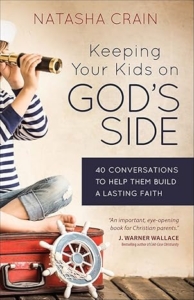
Natasha Crain is a blogger, author, and national speaker who is passionate about equipping Christian parents to raise their kids with an understanding of how to make a case for and defend their faith in an increasingly secular world. She is the author of two apologetics books for parents: Talking with Your Kids about God (2017) and Keeping Your Kids on God’s Side (2016). Natasha has an MBA in marketing and statistics from UCLA and a certificate in Christian apologetics from Biola University. A former marketing executive and adjunct professor, she lives in Southern California with her husband and three children.
Original Blog Source: http://bit.ly/2Clbys2

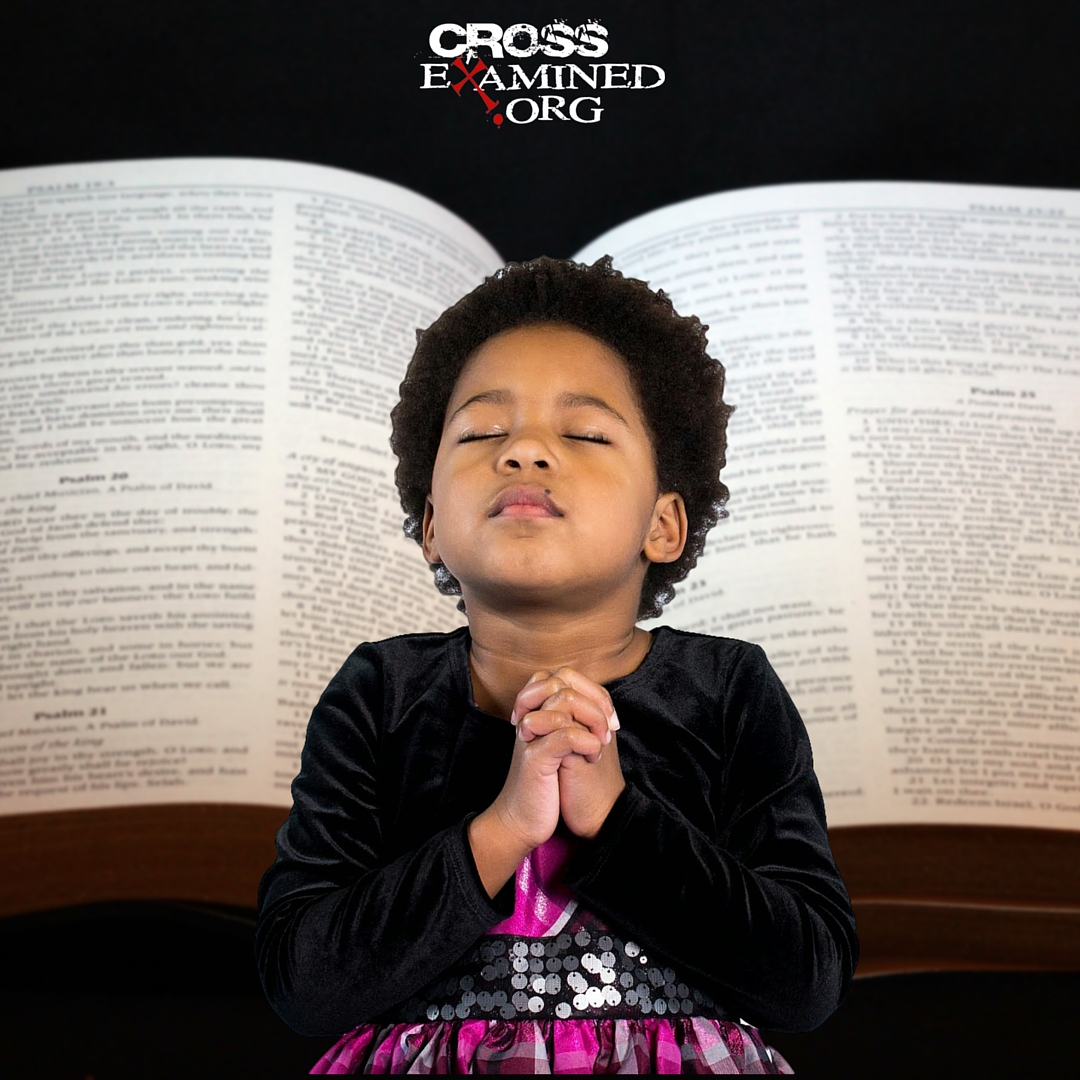




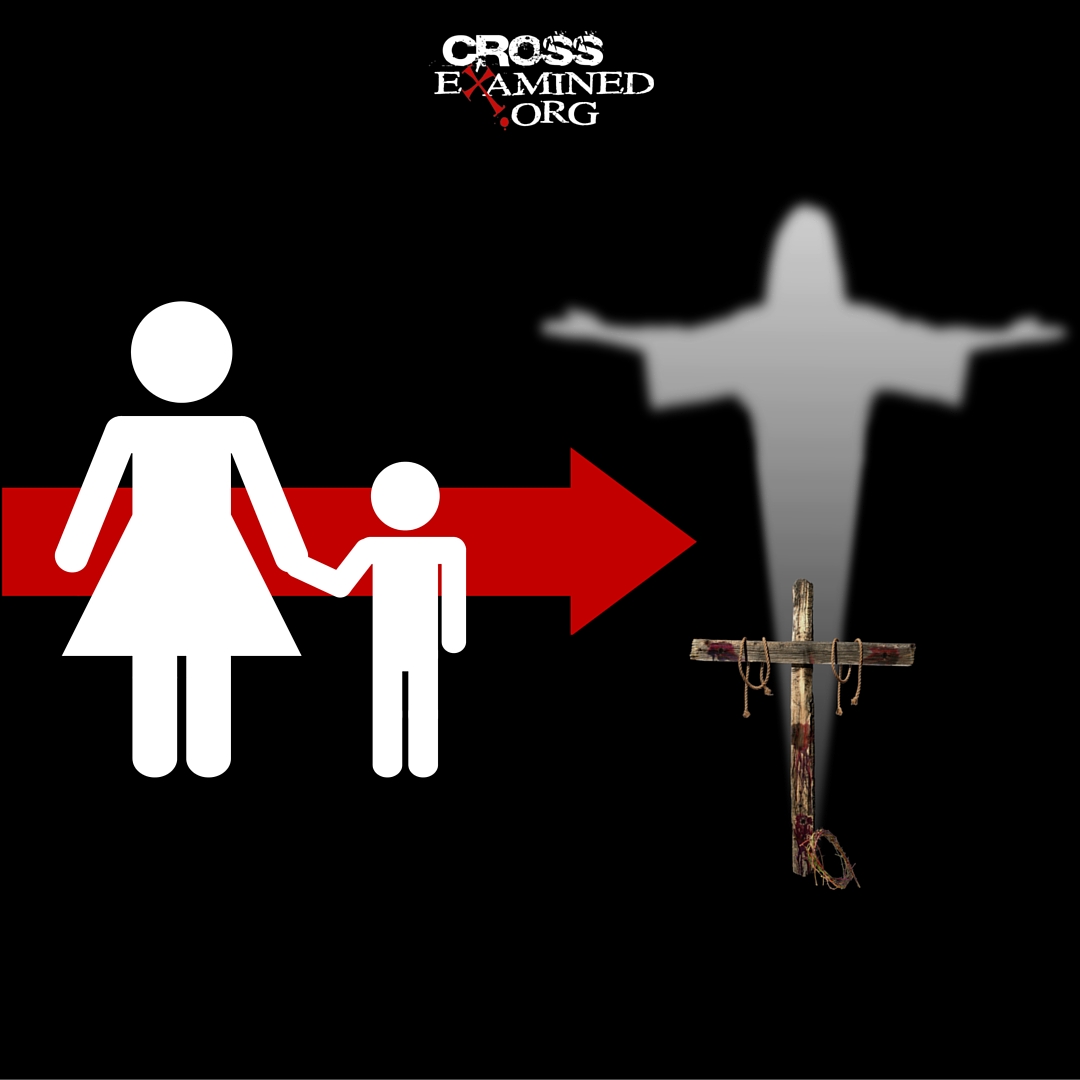
 http://bit.ly/2axGp8H
http://bit.ly/2axGp8H http://bit.ly/2aZGsGC
http://bit.ly/2aZGsGC http://bit.ly/2aZH1jK
http://bit.ly/2aZH1jK

